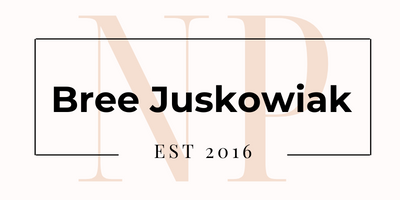What Makes For A Good Orientation
How long is long enough? When will I know I’m ready? How will I learn all this? All valid questions you should be considering when starting your NP job. Especially if this is your first job. The transition to practicing as a nurse practitioner is hugely different than that of becoming a nurse. Not only do you have all the clinical stuff to learn but even the work of learning how to structure your day, how to author notes, how to bill, what needs follow -up. So many facets of just being an NP exist, beyond the medicine piece. This is what many underestimate and these factors just do-pile onto the mountain of overwhelm many feel when becoming a nurse practitioner. So the appropriate question is what will my training be like? In this article I attempt to break down the components I feel lend itself to a good orientation process.
Mistakes To Avoid On Your Resume
I’ve seen a fair number of nurse practitioner resumes in my day. Seems like my large group is always cycling through new hires. In addition to that I look at all the resumes that come through for my consultation/interview prep business. It’s interesting to me the variety of what folks are doing across the nation. When I wrote my first NP resume I assumed we all heard the same HR lecture and wrote them the same. Most people have professional looking resumes but there are some industry specific issues that I find am repeatedly addressing with clients. In this post I’ll discuss the most common mistakes I see on the nurse practitioner resume.
Clinical Pearls: Evaluating For Intubation
When is it time to say it’s time? I think back on the really bad days of the pandemic when I walked from room to room asking myself this question repeatedly. Honestly, for intensive care unit level covid that’s what it felt like - a few random meds that typically didn’t help, supportive care, and careful vigilance for when it was time to go on the dreaded vent. Our patients feared it, our families feared it; it was the elephant in the room every time you walked in. Outside of covid pneumonia, there are a million reasons why a patient needs mechanical vent support and failing lungs are just one component. This is a very common question I get asked when I am training a nurse practitioner student Here’s how I approach evaluating a patient for intubation need.
NP vs RN: Differences in employment structure
This topic comes from a question I received from a client asking to explain how nurse practitioners fit into a physician run group. She expressed her surprise to learn that many APPs and physicians who work in a hospital are not employed by the hospital and asked for feedback about how this works and how nurse practitioners fit into this model. I definitely understand this confusion. As nurses, we are used to standard hospital or health system employment with clear hierarchical management. In this post I’ll talk about my experience with this and the main differences between NPs and RNs in regards to:
Who employs you.
Who manages/directs you.
How you get paid.
Who your colleagues are.
Nurse Practitioner Fellowships
When I say fellowship, I’m really referring to two types of post-graduate training: nurse practitioner residency and nurse practitioner fellowship. What’s the difference? A residency is more general and encompasses a broader scope of practice. It may be a longer time frame as well, most range between 6-12 months. It is ideal for someone who had little bedside experience or sub-par education in school (be it academic or clinical). A fellowship on the other hand is specialized and has a particular focus of interest. It is ideal for someone who has a strong sense of what they want to do and/or lack the opportunity to find a way into the niche.
The Best Nurse Practitioner Podcasts
Are you an avid auditory learner? I’m slightly obsessed with podcasts. I tend to go on benders based on what is going on in my life. I listened exclusively to travel podcasts for eighteen months when I planned a European trip a few years ago. I have always liked to use podcasts as an adjunct to my professional education as a nurse practitioner. IMO it’s hard to utilize them exclusively just because the search functions are not as robust (there’s a lot to dig through to find one talk about a subject like normal labs, etc) and the content is long. But, once you find a quality show that addresses your specific population it’s great to listen to on a more regular basis (versus a search approach). The nuggets of wisdom you can garner from these discussions can greatly impact your practice. You may have to be willing to wait for them, but if you were going to be doing the dishes anyway, why not multi-task? In this post I will share my favorite podcasts (which are mostly ICU): what I love about them and how I use the info in my career as an ICU nurse practitioner.






